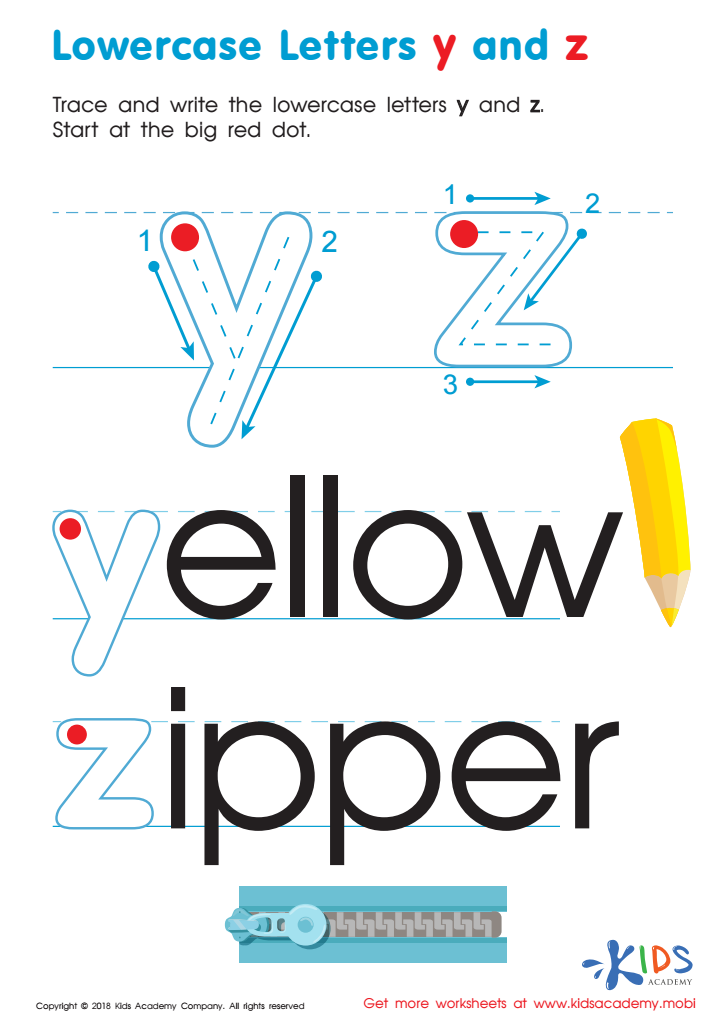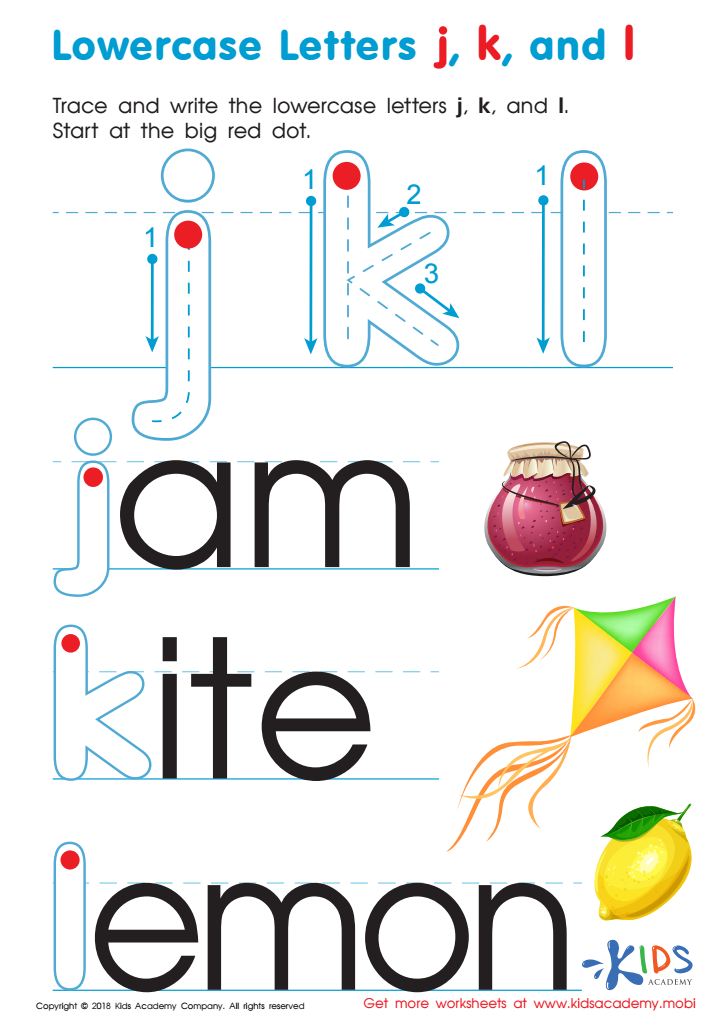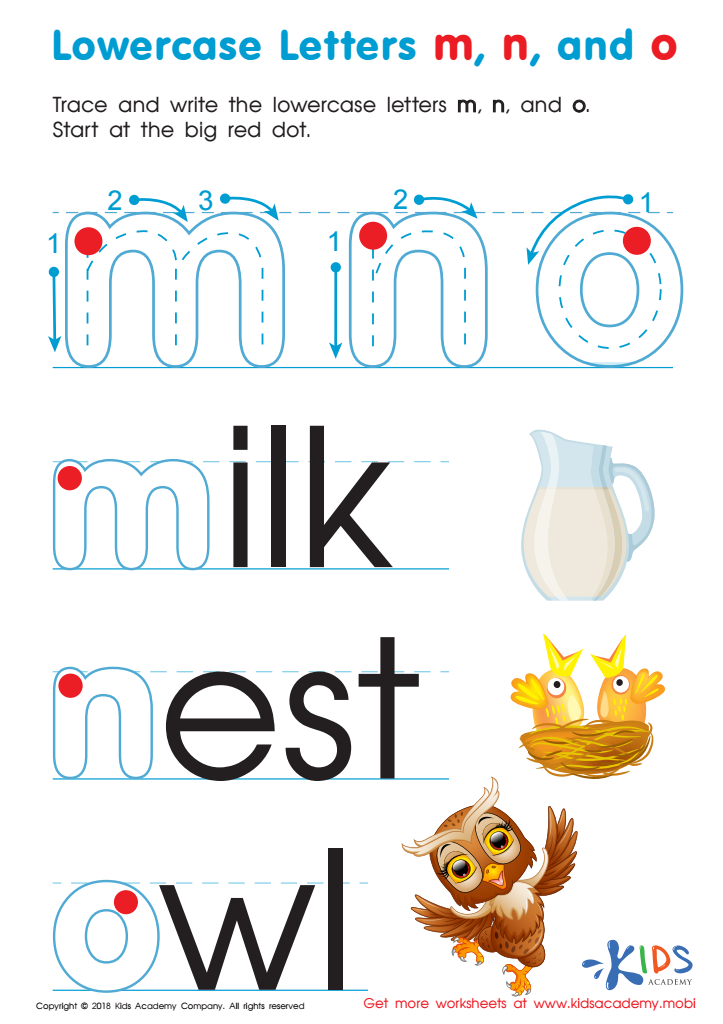Lowercase letter writing Normal Worksheets for Ages 5-8
3 filtered results
-
From - To
Discover our engaging lowercase letter writing worksheets designed specifically for children aged 5-8! These printable resources are perfect for enhancing early literacy skills as kids learn to form and recognize lowercase letters. Each worksheet features fun, interactive exercises that promote fine motor development and boost confidence in writing. Children will practice tracing, writing, and identifying letters through colorful illustrations and creative activities. Ideal for home, preschool, or kindergarten settings, our lowercase letter writing worksheets make learning enjoyable and effective. Start your child's journey to proficient writing with our expertly crafted worksheets today!


Lowercase Letters y z Worksheet


Lowercase Letters j k l Worksheet


Lowercase Letters m n o Worksheet
Lowercase letter writing is a critical skill for children aged 5-8, as it lays the foundation for effective communication and literacy development. At this age, children are transitioning from learning the basics of letters to applying these skills in reading and writing. Writing in lowercase enhances their ability to read fluently since most printed texts primarily use lowercase letters. Familiarity with lowercase forms helps children recognize words in context, bolstering both their reading comprehension and writing confidence.
Additionally, mastering lowercase writing contributes to the development of fine motor skills. The repetitive motions involved in forming letters strengthen hand-eye coordination and dexterity, which are essential for more complex writing tasks as they grow. When parents and teachers prioritize lowercase writing, they foster an environment that encourages practice and creativity.
Moreover, lowercase writing fosters a sense of ownership and individuality in children, as they often associate uppercase letters with formality or rigidity. Encouraging lowercase writing allows kids to express themselves more freely, promoting a love for writing early on. Consequently, investing time and effort into mastering lowercase letters can significantly boost children's academic success and self-esteem, making this a vital aspect of early education.
 Assign to My Students
Assign to My Students















